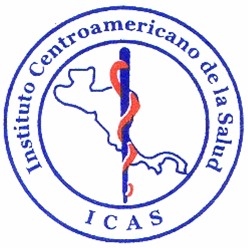|
|
ICAS - PUBLICATIONS A Guide to Competitive Vouchers in Health |
|
|
Dr. Zill Rojas, during an annual meeting of the American Asociation of Public Health. |
ICAS has developed a strategy called "Competitive Vouchers" which facilitates access to health services for vulnerable groups such as adolescents, poor rural women and persons most at risk of HIV. The strategy is built on the principle of competition, which empowers clients by entitling them to redeem a voucher at a contracted clinic of their choice. It also gives incentives to contracted clinics to be innovative, cost effective and responsive to clients' needs. The guide is intended for international donors, health care providers and policymakers in developed and developing countries. The authors are members of ICAS whose knowledge and experience in the development of voucher programs contributed to the writing of this guide. The guide explains the benefits of the strategy - delivering health benefits to population groups at greatest need. The World Bank distributes this publication as: "A Guide to Competitive Vouchers in Health", ISBN: 0-8213-5855-3. By permission from the World Bank, the document can be downloaded here. A Guide to Competitive Vouchers in Health.pdf ICAS members have also produced a review of international experience
with voucher schemes which can be downloaded here: Background
Paper Competitive Vouchers in Health.doc |
|
| Other publications
by ICAS associates |
||
| ICAS members have written and contributed to a variety of publications about current programs. Publications related to specific programs can be found on the page for each program. Publications by ICAS members on other health-related subjects are shown below. We can supply electronic versions of these publications on request. Anna C. Gorter, Corinne Grainger, Voucher Programmes: Lessons from a review of voucher programmes in Low Income Countries, invited presentation at a meeting of the Interagency Working Group on Result Based Financing, DFID´s offices, London, UK, 15 November 2011. Gorter AC, Can Demand Side Financing, e.g. vouchers, assist Governments to reach MDGs and reduce Maternal Mortality?, Presentation in Video Conference with MoH of Papua New Guinea and other relevant stakeholders in order to support and facilitate dialogue and policy development for the implementation of demand side financing for maternal health in PNG, September 8, 2010, Netherlands- Papua New Guinea. Peter Sandiford, Getting back the missing men of Aotearoa: declining gender inequality in NZ life expectancy, Journal of Primary Health Care, 2009; 1(4): 270-277. Gorter AC and Bellows BW, Do competitive voucher schemes improve the provision of health care to underserved and/or vulnerable population groups? Experiences from Nicaragua, India and Africa. Invited Seminar, Department of Social Medicine, University of Bristol, April 24, 2008. Gorter AC and McKay J, Competitive voucher schemes to increase access to and quality of sexual and reproductive health care for marginalized and/or vulnerable populations, invited presentation at the British Society for Population Studies meeting "Reproductive health in Latin America: costs, outcomes and policies", London School of Economics and Political Sciences, September 20, 2007, London, UK. New Gorter AC and McKay J, Competitive Voucher Schemes for Health, Oral presentation panel "How Can Private Providers be Engaged in Serving the Poor?", 6th World Congress on Health Economics (iHEA), July 8-11, 2007, Copenhagen. New Bhatia MR and Gorter AC. Improving access to Reproductive and Child Health services in developing countries: are competitive voucher schemes an option? Journal of International Development; 2007; 19(7): 975-981 (16 March 2007, DOI: 10.1002/jid.1361). Summary published in id21 Research Highlight: 18 December 2007.New http://www.id21.org/health/h6mb3g2.html Bhatia MR, Yesudian CAK, Gorter AC and Thankappan KR. Demand side financing for Reproductive and Child Health (RCH) services in India. Economic and Political Weekly, January 2006, India. Moisés León. Perceptions of health care quality in Central America. International Journal for Quality in Health Care, 15(1):61-71, 2003. Rojas Z. The search for a satisfactory approach to the evaluation of health management training: A case study from Central America. Thesis of Doctor, University of Liverpool, UK. August, 2002. Rojas, Z. Haran, D. Marr, N (2002). Emperor’s Clothes? Does Training Pay Off? Evaluating Health Management Training in the Developing World, Organisation Development in Health Care: Strategic Issues in Health Care Management, Edited by Rushmer, R.K Davies, H.T.O. Tavakoli, M and Malek, M. Ashgate. Publishing Limited, England. pp128-138. Flores W. Health in the Main Cities of Central America: A comparative review of the status and the institutional responses, Series of Technical Reports in Central America-ICAS, San Jose, Costa Rica, 2000. Sandiford P. Health concern. [Letter in response to article on health service privatisation in Latin America]. Economist, p.8, June 5-11, 1999. Sandiford P. WHO DOTS Strategy [Letter]. Lancet, 1999; 353(9154):755. Sandiford P. Devolution in Latin America has had poor effects on health care. British Medical Journal, 1999; 319:55 Gorter AC, Sandiford P, Pauw J, Morales P, Perez RM and Alberts H. Hygiene behaviour in rural Nicaragua in relation to diarrhoea. International Journal of Epidemiology, 1998; 27:1090-1100. Sandiford P, Cassel J, Sanchez G and Coldham C. Does intelligence account for the link between maternal literacy and child survival? Social Science and Medicine, 1997; 45:1231-1239. Coldham, C.P. The measurement of cause-specific mortality in infants and children using the WHO/UNICEF best-judgement verbal autopsy: validation of the instrument in Managua and Masaya, Nicaragua. Transactions of the Royal Society of Tropical Medicine and Hygiene, 1996; 90(1): 4. C.Coldham, D.Ross, M.Quigley, D.Chandramohan, Z.Segura "Prospective validation of a standardised questionnaire for estimating childhood mortality and morbidity due to pneumonia and diarrhoea." Tropical Medicine & International Health, March 2000 World Health Organization, Johns Hopkins School of Hygiene & Public Health, London School of Hygiene & Tropical Medicine. A Standard Verbal Autopsy Method for Investigating Causes of Death in Infants and Children (WHO/CDS/CSR/ISR/99.4). Geneva: WHO, 1999 (Anker, M; Black, RE; Coldham, C; Kalter, HD; Quigley, MA; Ross, D; Snow, RW.) Sandiford P, Gorter A and Torres MC. Sexually transmitted disease in developing countries [letter]. Transactions of the Royal Society of Tropical Medicine and Hygiene, 1996; 90:587. Pauw J, Ferrie J, Rivera R, Medrano J, Gorter A and Egger M, A controlled HIV/AIDS-related health education programme in Managua, Nicaragua. AIDS 1996; 10:537-544. Gorter AC, Alberts JH, Gago JF and Sandiford P, A randomized trial of the impact of rope pumps on water quality. Journal of Tropical Medicine and Hygiene 1995; 98:247-255. www.ropepump.com Gorter AC, Sanchez G, Pauw J, Perez RM, Sandiford P and Davey Smith G, Childhood Diarrhoea in Rural Nicaragua: Beliefs and Traditional Health Practices. Boletin de la Oficina Sanitaria Panamericana, 1995; 119:377-390. Sandiford P, Cassel J, Montenegro M, Sanchez G. The impact of women's literacy on child health and its interaction with access to health services. Population Studies, 1995; 49(1):5-17. Rojas Z and Sandiford P. Developing management skills in the SIGLOS project: Its not just how you train, its who you train. Learning for Health, 1995; 7:3-6. Lankshear C, Sandiford P, Montenegro MM, Sanchez G, Coldham C and Cassel J. Twelve years on: women's literacy in a Nicaraguan municipality. International Journal of Lifelong Education, 1995 14(2):162-171. Rojas Z and Sandiford P. Commitment to change. Health Action, 1995; 13:8. Sandiford P, Cassel J, Melendez D, Coldham C. The Electronic Stadiometer: An appropriate technology for height measurement in health surveys. Tropical Doctor, 24-25, January 1994. Rojas Z, Sandiford P, Martinez J. (1993) "Training health managers for developing countries in developed countries: Fish out of water?" In Malek, M.R., J. and Vacani, P. (ed.), Strategic Issues in Health Care Management. John Wiley, Chichester, Vol. 1, pp. 65-7. Davey Smith G, Gorter A, Hoppenbrouwer J, Sweep A, Perez R, González C, Morales P, Pauw J and Sandiford P, The cultural construction of childhood diarrhoea in rural Nicaragua: Relevance for epidemiology and health promotion. Social Science and Medicine 1993; 36:1613-1624. Sandiford P, Alberts H, Orosco JG and Gorter A, The Nicaraguan Rope Pump, Waterlines 1993; 11:27-30. Gorter A, Miranda E, Ortells P, Davey Smith G and Low N, How many people actually use condoms, an investigation of motel clients in Managua. Social Science and Medicine 1993; 36:1645-1647. Egger M, Ferrie J, Gorter A, González S, Gutiérrez R, Pauw J and Davey Smith G, Knowledge, attitudes and behaviors regarding HIV/AIDS among Managuan secondary school students. Bulletin of the Panamerican Health Organization 1993; 27:360-369. Low N, Egger M, Gorter A, Sandiford P, Gonzalez A, Pauw J, Ferrie J and Davey Smith G, Aids in Nicaragua: Epidemiological, political and sociocultural perspectives, International Journal of Health Services 1993; 23:685-702. Gorter A, Sandiford P, Davey Smith G and Pauw J, Water supply sanitation and diarrhoeal disease in Nicaragua: Results from a case-control study. International Journal of Epidemiology 1991; 20:527-533. Sandiford P, Morales P,Gorter A, Coyle E and Davey Smith G, Why do child mortality rates fall? An analysis of the Nicaraguan Experience. American Journal of Public Health 1991; 81:30-37. [This paper was the subject of an editorial in that issue of the AJPH. It has been summarised and published as a digest in International Family Planning Perspectives under the title "Better Access to Health Services in Nicaragua Lowered Infant Mortality", 1991, 17(2):77-78.] Arauz R,Low N,Gorter A, Davey Smith G, AIDS in Nicaragua [letter]. Lancet 1991; 337:1290. Sandiford P, Gorter A, Orozco G and Pauw J, Determinants of domestic water use in rural Nicaragua. Journal of Tropical Medicine and Hygiene 1990; 93:383-389. Low N, Davey Smith G, Gorter A and Aráuz R, AIDS and migrant populations in Nicaragua [letter]. Lancet 1990; 336:1593-1594. Sandiford P, Gorter A, Davey Smith G and Pauw J, Determinants of drinking water quality in rural Nicaragua. Epidemiology and Infection 1989; 102:429-438. |

